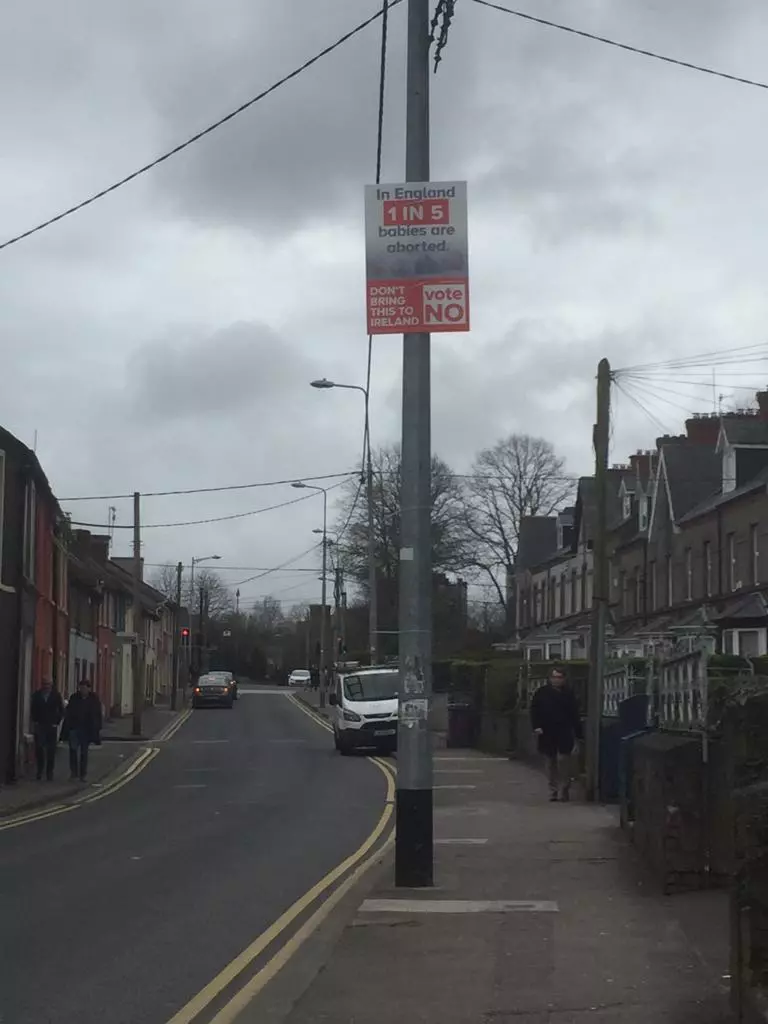Predominantly Catholic Ireland Faces a Controversial Vote on Abortion



As I watched the festive St. Patrick’s Day parade jubilantly marching through the streets, I learned that 2018 marks the 100th year of the women’s right to vote. Many of the groups in the parade chose to display a reflection of women taking action and gaining rights; many enthusiastically shouted that a woman’s place is in the resistance. Meanwhile, young mothers campaigning for a woman’s right to choose in Ireland, were heckled as they campaigned in the streets for legalization. This occurred even after the minister agreed to put the abortion bill to a popular vote scheduled for May 25th.
As the vote on the referendum creeps closer, two of my lecturers emphasize that while some of the international students to whom they are speaking may see the vote as pertaining to women’s rights to control their own body, some of the more religious people in Ireland, who make up a majority, see the vote as immoral. Those who oppose the repeal for religious reasons believe that a baby is a person from conception and consider life sacred making abortion illegal and immoral.
In the week leading up to Easter as everyone appeared to have their minds solely focused on Lent and the Easter holidays, hundreds of posters had gone up overnight. On every telephone pole along the road on my way to University College Cork there were campaign posters claiming that in England 1 in 5 babies are aborted and that it would be immoral to bring the legalization of abortion to Ireland. As far as I have seen, there are far fewer posters encouraging people to vote to bring legalized abortion to Ireland.
With that in mind, I stepped back onto campus after the Easter holidays without knowing what to expect from the Irish students in my classes; however, I did not expect the amount of pain and personal confliction behind the upcoming vote. Compelled to campaign for the repeal by a popular vote back in November of 2015, the Students’ Union appears to have underestimated the inner turmoil facing a majority of the student body. Some students proudly boast that they are either for or against the repeal; however, others fear that whichever way they vote they will betraying someone or something that they believe in. Other students simply do not want the reminder of the referendum because they do not want to hear about a topic that has been taboo to speak of in polite society for a long time. Many students felt confused and hurt by the active campaigning on campus, not understanding that it was the result of a prior student vote.
I had known when I first applied to study abroad in Ireland that the Republic of Ireland is a majority Catholic country. However, I never fully appreciated the depth of the value system and beliefs inspired by the Catholic faith rooted in the everyday lives of people in Ireland until I arrived in the country and saw the posters heralding the arrival of the controversial vote.
In both my History of Crime and Media in Ireland and my Folklore class, we have been discussing the vote from different angles, examining the controversial factors on both sides. On one side, my history professor continued to lecture about how the constitution in Ireland is one of the most amended constitutions in the world despite its short history. On the other, in my folklore class, we have been discussing about when Catholicism came to Ireland, it had to adopt and transform deep-seated pagan traditions into the catholic practice in Ireland due to the nature of the Irish beliefs and values unique to each county, parish and city in Ireland.
The reach of Catholicism had been thwarted once before, yet as the Irish people made their own unique mark on the faith, Ireland fast became a majority Catholic country and they have held onto their faith and have continued to make it work for their current needs. When King Henry VIII of England created the English Protestant church, the Catholic faith retained its strong hold over the hearts, minds and souls of the people of the Republic of Ireland, who found ways to worship and follow their faith even when it appeared that it was controversial. Could the Irish Catholic faith as it currently stands adapt its views on the rights of mothers based on the results of this referendum? Will the people of Ireland vote this referendum down again, as previous versions of the abortion bill have failed? Has there been enough compromise in the bill?
As previous versions of the bill have failed in recent years, so did another controversial issue. Referendums on birth control had largely failed until one of the major Irish media sources published a story about a mother who had been illegally trafficking birth control into the country so that she could still engage her marital duties, without the fear of becoming pregnant again, which doctors warned would jeopardize her life. After the media frenzy surrounding that story, the law was amended, making birth control legal in Ireland. In this instance, the Irish Catholic majority found it to be within their interest to vote for the referendum, yet despite the various international news sources running stories on the hardships of women in Ireland who have tried to get an abortion, the law has not yet changed.
Although abortion is also a major issue in United States politics as well, I have found that in Ireland the discourse on the issue seems to be more divisive, with even voting on the referendum becoming perceived as not Irish. I did not expect the amount of controversy surrounding this issue in Ireland; I am seeing this vote split friend groups apart even when they are voting the same way because of a difference in beliefs and the Irish identity.
Kiely G. | Psychology Major and Elementary Education Certificate Candidate | Connecticut College | University College Cork Partnership in Ireland | Spring 2018 | IFSA International Correspondent